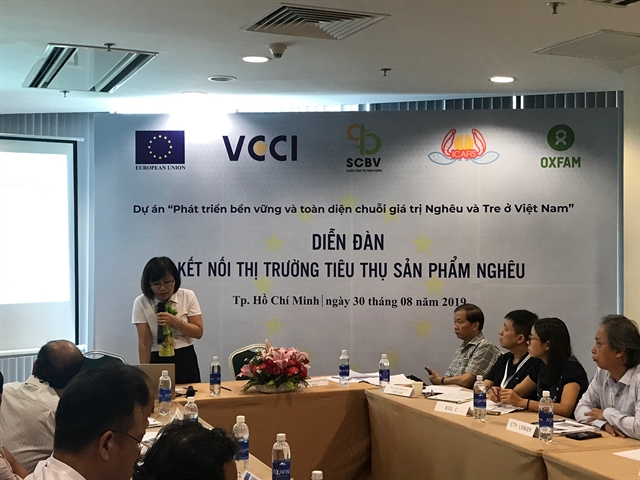 Economy
Economy


|
| Việt Nam's bivalve exports face problems such as tough food safety requirements, a forum heard in HCM City yesterday (August 30). - VNS Photo Việt Dũng |
HCM CITY - Though exports of bivalves such as clams and scallops have great potential, the industry is facing challenges related to food safety standards and farming, experts told a forum in HCM City on Friday.
Lê Hằng of Việt Nam Association of Seafood Exporters and Producers said their exports were worth around $89 million last year, 10 per cent down than 2017 and only around 19 per cent higher than 10 years ago.
Inconsistent supply and tough requirements from importers are hindering exports, she said.
The EU is Việt Nam's biggest market for these products, accounting for around 63 per cent of its exports in 2018 but down 20 per cent from the previous year.
Scallops are the most popular of Việt Nam's bivalve products, accounting for 68.5 per cent, followed by clams.
Hằng noted that bivalves fit for export must be harvested from farms that are a part of a national programme, and carry detailed information such as the address of harvesters, harvest dates and location, and the harvesting area's hygiene status.
Most cannot be exported in raw form and have to be heat processed.
Nguyễn Thị Diệu Hiền of the Việt Nam Chamber of Commerce and Industry (VCCI) said many farmers are still small and use old-fashioned ways without forming chains, and thus have to rely on traders.
Small processing businesses are limited in capability and technologies, while bigger businesses are not part of a value chain.
Hoàng Quang Phòng, deputy chairman of the VCCI, said the Comprehensive and Progressive Agreement for Trans-Pacific Partnership and the EU - Việt Nam Free Trade Agreement offer markets and tariff cuts, which could help improve the competitiveness of Vietnamese seafood.
But Vietnamese companies have to abide by regulations governing quality standards, origins and traceability and social responsibility, and could have to change how they operate, harvest and manage their business, he said.
The forum was held by the VCCI and International Collaborating Centre for Aquaculture and Fisheries Sustainability. - VNS




